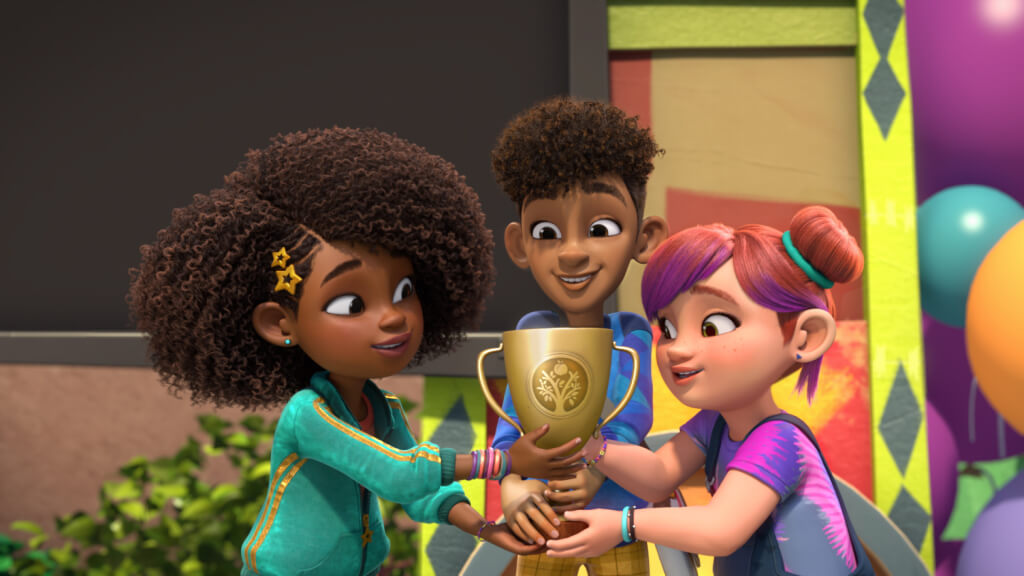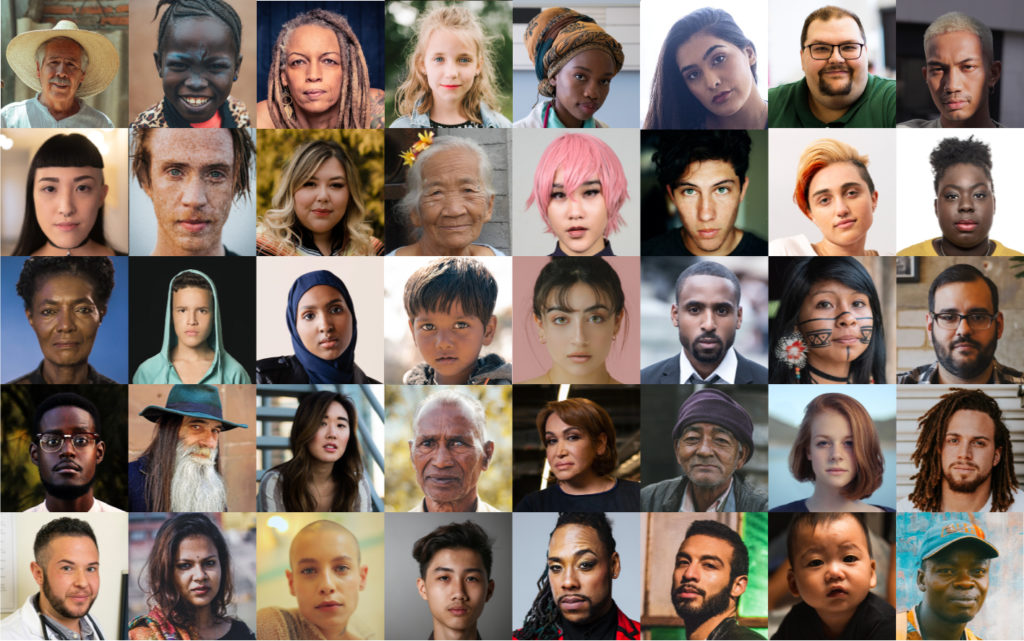Media, entertainment, & other forms of popular culture play a significant role in shaping our perceptions of others across lines of identity difference.

Representation matters.
Media, entertainment, and other forms of popular culture play a significant role in shaping our perceptions of others across lines of identity difference. For many of us, popular culture is the primary way we learn about groups to which we do not belong.
Through media and entertainment, new narratives–ones that create an exemplary world in which difference is a fact of life that is treated with dignity and respect–can emerge and be made widely accessible. Research suggests that when people are met with holistic, multifaceted representations of groups across lines of difference, they are likely to develop a more empathic connection with their lived experiences. This finding was revealed in our 2015 evaluation of the webseries Halal in the Family, which used a sitcom format to show a Muslim American family grappling with a broad range of challenges associated with Islamophobia. Although this study was conducted at a very specific moment in time, its findings remain salient as it relates to what people need to experience from the media they consume in order to think differently about the world.
Through these representations, we see a limited and distorted view of others, which can impact our behavior in interpersonal relationships. Among the most belabored examples are the harmful portrayals of Black boys and girls, often limiting positive examples to successes in sports and music. We know that to effectuate change in people’s experiences on an interpersonal, institutional, and structural level we need a range of accurate portrayals that counter these over-utilized stereotypes.

We recognize the urgency of interrupting these stereotypes before viewers latch onto them, and work within the children’s media landscape to put forward people of all identities in nuanced ways. Our collaboration with the creative team behind Karma’s World is one such example. Karma Grant is a middle schooler navigating everyday life in a vibrant, meaningfully diverse community called Hansberry Heights. Both the multiplicity of identities represented throughout the show’s four seasons and the team’s attention to specific and accurately detailed representation of many different facets of social identity make for a world in which people can learn from each other and recover from identity harms in relationships.
Given our focus on the tapestry of interpersonal relationships across lines of difference, our research translation work is complementary to cultural consultants across a broad range of approaches.






HIGHER EDUCATION
Research shows that despite the progress, much work remains.
The American Council on Higher Education reports that in 2023, over two million students will receive college degrees with a record share going to students of color. Gains are especially strong in science, technology, engineering, and math (STEM) fields. A majority of today’s college students are also the first in their family to seek a bachelor’s degree. Institutions of higher education must ensure that all students have full opportunities to thrive, and to feel a sense of belonging which has been shown to be necessary for student success and well-being.
Research shows that despite the progress, much work remains. For example, a 2023 study found that while Black students entering medical school are more likely than students of other groups to be interested in pursuing MD-PhD programs, they are the least likely to finish the PhD programs. The vast majority of Black medical students go on to become doctors, but the reports of maltreatment and discrimination impede their retention in the PhD programs and the innovations and contributions they were aspiring toward.
And the work necessary is more than ending explicit maltreatment. For students to excel, they must find teachers who will help them grow and learn through both positive reinforcement and accurate, meaningful criticism. Because of experiences with teachers throughout their lives, many students of color are unsure whether or not negative feedback is the result of bias or positive feedback is merely racial condescension. This uncertainty is called “attributional ambiguity,” and it holds students of color back by making responding to feedback from teachers and mentors an anxiety-producing minefield of potential conflict.
Focusing on this problem has led to the development of what is called “wise feedback.” Wise feedback begins with a statement of high expectations, followed by a clear identification of how the student’s work shows the capacity to meet those expectations, followed by clear critical feedback. In the groundbreaking study of this form of feedback, 71% of Black students receiving this kind of explicitly worded feedback on an essay revised and resubmitted their work, while only 17% revised their work when the notes they received lacked this statement.
Perception has worked with a broad array of institutions to bring these and other interventions directly to classrooms and students, with the goal of dramatically improving the experiences and outcomes at the college level.



One of those problems (systems) is our corporate media and the images they send into our homes every single day that put some people on top and some people on the bottom.
explore some of our work relating to Media narrative and cultural change

